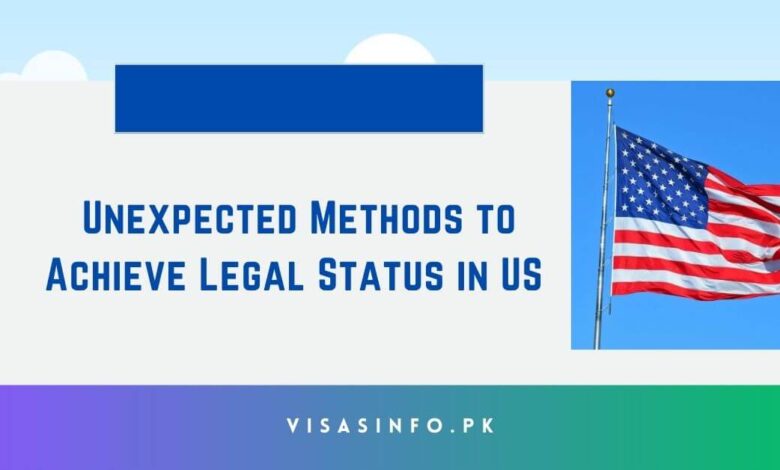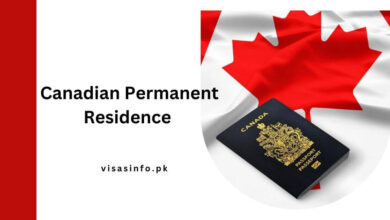Unexpected Methods to Achieve Legal Status in US 2024

Immigration law in the United States is a complex discipline that presents numerous challenges for individuals who have entered the country illegally. It is imperative to recognize that Congress has established distinct pathways to address the diverse circumstances that unauthorized immigrants encounter.
This page delves into a diverse array of legal options, offering comprehensive explanations of each, as well as information on qualifying requirements and potential benefits.
Asylum: A Complex Route to Protection
To secure safety and security, individuals who have been persecuted in the past or who anticipate future persecution in their native country frequently enter the United States illegally. Asylum is one potential refuge. Nevertheless, the asylum process is renowned for its complexities, and data suggests that a significant number of applicants may not meet the rigorous criteria.
This article delves into the intricacies of the asylum application process, as well as the definition of persecution, the standard of proof, and the evolution of asylum laws. It discusses the most recent modifications to the asylum system and the challenges encountered by undocumented immigrants who are seeking asylum, thereby shedding light on the broader implications for those who are traversing this intricate legal process.
Overcoming Domestic Violence Through VAWA
Undocumented individuals who have been the victims of domestic abuse by a spouse, parent, adult child, US citizen, or green card holder. VAWA, the Violence Against Women Act, provides a potential lifeline. This article examines the qualifications for application, the application process, and the privileges that victims of domestic abuse may obtain under VAWA.
This section endeavors to provide a comprehensive understanding of the potential of VAWA as a critical resource for undocumented immigrants who are pursuing legal status in the United States. It does so by examining real-world case studies and success stories. It also addresses the importance of legal counsel and support services in the process of navigating the complexities of the VAWA application.
Seeking Justice for Crime Victims U-Visas
Undocumented individuals who have been the victims of offenses in the United States may be eligible to apply for U-Visas to obtain the necessary legal status. This section delineates the prerequisites for obtaining a U-Visa, the application process, and potential challenges that applicants may face during the lengthy approval process.
It also examines the T-visa, which is designed for individuals who have been coerced to labor as victims of human trafficking or have been exploited. This article aims to provide a comprehensive comprehension of the options available to illegal immigrants who have been the victims of crimes or human trafficking by conducting in-depth interviews with legal professionals and individuals who have benefited from a variety of visa programs.
Cancellation of Removal: Navigating the Immigration Court
Those who are confronted with Immigration Court hearings and removal orders may find solace in the possibility of having their removal order revoked. However, this respite is subject to stringent criteria, including a minimum of ten years of residency in the United States and a qualified relative who is either a US citizen or a holder of a green card.
This essay delves into the intricacies of the removal procedure cancellation, as well as the significance of legal presentation in enhancing the probability of success, effective case methods, and typical errors. Important insights into the realities of removal or cancellation are provided by testimonials from genuine individuals who have completed this process.
Check Also: US Green Card Rules – Visit Here
Benefits of Unexpected Methods to Achieve Legal Status
- Legalization Opportunities Increased: Unanticipated methods, such as legislative changes or newly introduced programs, can offer new pathways to legal status that were previously unavailable. This has the potential to provide optimism and the opportunity for a more stable and secure future.
- Enhanced Security and Stability: The acquisition of legal status affords individuals a more stable and secure living environment, thereby reducing the constant dread of deportation and enabling them to fully integrate into society.
- Access to Benefits: The quality of life can be considerably enhanced by the provision of a variety of benefits and services, such as healthcare, educational opportunities, and social services, which are frequently granted to individuals with legal status.
- Work Authorization: Legal status typically encompasses the capacity to work legally, which can result in improved job prospects, equitable compensation, and workplace safeguards.
- Family Unity: Legal status can occasionally facilitate family reunification or enable family members to modify their status, thereby promoting family stability and unity.
- Pathway to Citizenship: For numerous individuals, obtaining legal status is the initial step toward eventual citizenship, which offers long-term security and the capacity to completely engage in civic life.
- Economic Contributions: Legalization enables individuals to make a more substantial contribution to the economy by engaging in legal employment and entrepreneurship, which is advantageous to both the individual and the broader community.
- Community and Social Integration: Legal status allows individuals to establish social connections, participate in local activities, and engage more openly with their communities without the concern of legal repercussions.
Section 245 Amnesty: Navigating the Complexity
Section 245 Amnesty is a prospective method for granting legal status to individuals who were included in an older petition submitted before April 30, 2001. This section delves into the complexities of this process, such as the process of evaluating each case to determine eligibility. Legal professionals offer valuable advice to those contemplating Section 245 Amnesty, addressing the challenges and opportunities it presents.
Parole in Place (PIP): A Special Route for Military Families
The Parole in Place (PIP) option, which allows close relatives of US military personnel to obtain a green card, may prove to be inconvenient. This section explores the specifics of PIP, including eligibility requirements, application processes, and potential benefits for the families of service members.
To enhance readers’ comprehension of the significance of PIP, this section comprises first-person narratives from individuals who have implemented it effectively. Legal professionals offer guidance on how to navigate the application process and overcome any challenges.
Conclusion
Despite the complexity of the legal system for undocumented immigrants in the United States, there are numerous pathways to obtaining legal status. Every alternative, such as Asylum, VAWA, U-Visas, annulment of removal, Section 245 Amnesty, and Parole in Place, has its own set of advantages and disadvantages.
To make well-informed decisions regarding their immigration voyage, individuals in these circumstances must conduct thorough research, consult an expert, and understand the unique requirements of each Pathway.
Frequently Asked Questions:
-
How can I obtain legal status in the United States?
Visa. Obtaining a visa is another way to obtain legal status. If you have specialized skills, your employer can sponsor your work visa. You can apply for a long-term or short-term visa and return to your country after the specified duration.
-
How do immigrants become legal in the United States?
A person can apply to become a lawful permanent resident (LPR) once they receive an immigrant visa or certain other eligible protections, such as asylum or refugee status. I
-
What happens if you illegally enter the US?
Under federal law, people who enter or reenter the United States without authorization are subject not only to civil immigration detention and deportation proceedings but also to criminal sanctions.



